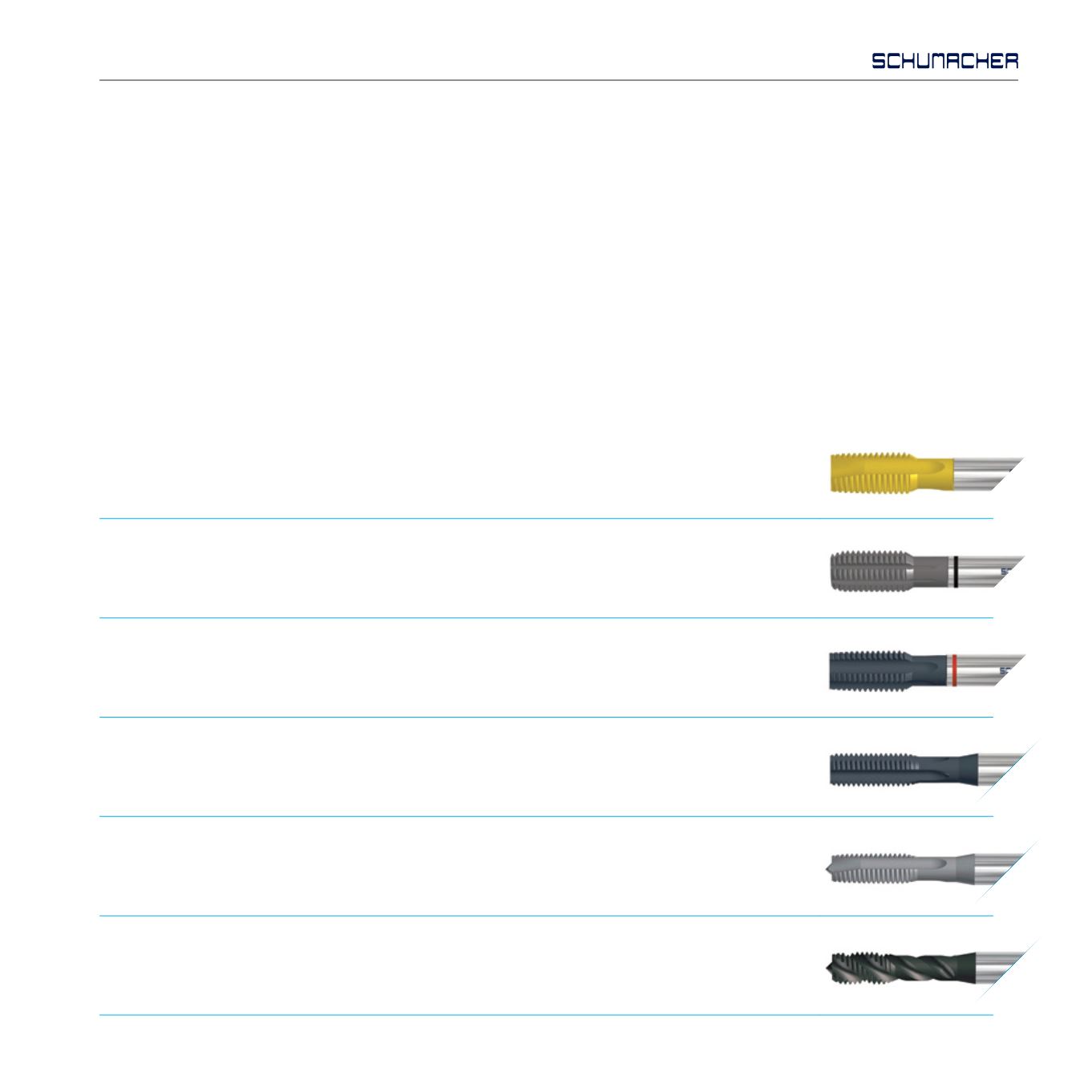

Technology
TiN Coating
Allround coating designed to improve tool life and optimize cutting speed. With a surface hardness of 2600 HV 0.05 and a frictional
coefficient of 0.40 this coating can be applied in working temperatures of up to 450°C. The thickness of the layer ranges between
2 - 4 µm. TiN coatings have a internal compressive stress of approx. 3.1 GPa.
TiCN Coating
Improved tribological characteristics compared to TiN. Micro hardness at 3000 HV 0.05; frictional coefficient reduced to 0.35 compared
to steel. Temperature stability of TiCN layers (thickness of 2 - 4 μm) extends up to 350°C. Internal compressive stress is at 3.5 GPa.
TiAIN Coating
Optimized PVD layer system, for hard materials of up to 50 HRC. Enhanced range of employment due to temperature stability
up to 800°C and micro hardness of 3000 HV 0,05. This layer system features an oxidizing protection layer which provides the tool
with a ‘renewal effect.’ Internal compressive stress of 1.9 GPa. The coating system is applied with a layer thickness of 2-4 µm.
SG4 Coating
Special coating made of super hard coating layer and solid state lubrication layer. Sectors of use comprise dry cutting and minimum
lubrification. Wide range of applications due to optimum friction results and reduced tendency of adhesion.
CrN Coating
PVD layer system for non-ferrous materials and thermoplastics. It can be applied in working temperatures up to 600°C and has a
low frictional coefficient of 0.3 compared to steel. The layer system has a thickness of 6 μm and a micro hardness of 1750 HV 0.05.
DLC Coating
The diamond like carbon layer ist the best solution for non-ferrous materials. The high surface hardness of 5000 HV 0,05 is combined
with a very low friction coefficient of 0.1 compared to steel. The characteristics are completed by the reduced layer thickness of
0.8-1.2 μm and a high temperature stability up to 500°C. Because of this the material adhesion is significantly reduced.
Technologies for hard material coatings of HSS and solid carbide tools are
increasingly important since they bring about advantages such as:
› an increase in tool life
› a reduction of set-up times
and a substantial
› increase of working speeds
These factors justify the extra expenditures compared to tools without hard material coatings.
Coatings
8.3
















